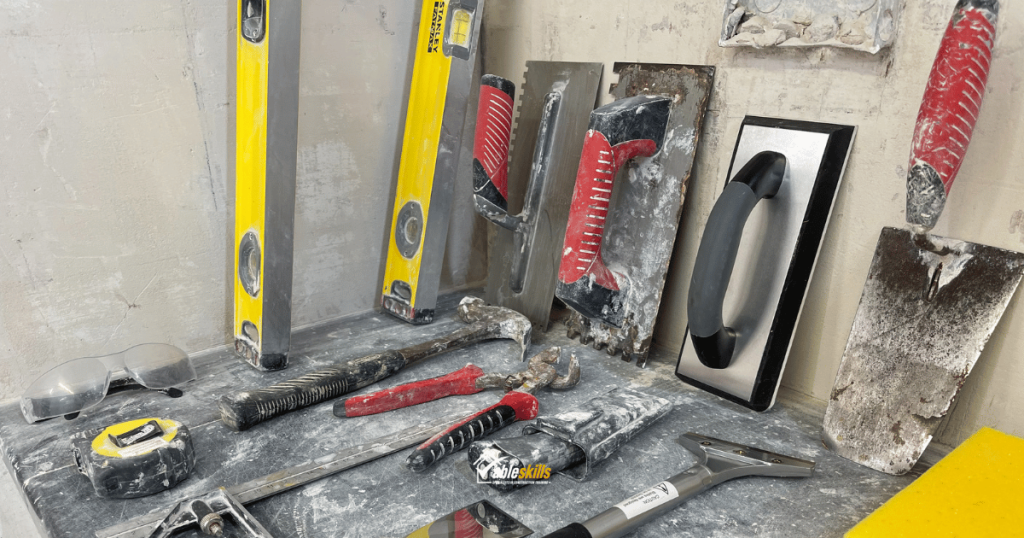
If you’ve dabbled in the odd tiling DIY project around the house, or you have a job that you’ve been putting off for a while, the prospect of completing a tiling training course might be something that’s crossed your mind.
For anyone who has been thinking about undertaking a professional tiling course, you may be asking yourself whether the time and cost involved are actually worth it, especially if you already possess a few basic skills needed to complete simple jobs.
Whether you plan to use these skills in a professional or personal capacity, below we’ve detailed a few reasons why investing in an expert-led tiling course is worthwhile in the long term.
A higher quality of training
Simply put, nothing can replicate learning in person, from a time-served tiling professional who understands exactly what is needed to succeed in the craft.
Along with gaining a formal qualification, being taught in this hands-on fashion prevents you from picking up common bad habits such as excessive grouting and laying tiles on uneven surfaces. It also means you can ask the instructor about anything you might be unsure of, something which isn’t possible from watching a ‘how to’ video online.
Tiling is rarely a one-size-fits-all task, and instructors can go into greater detail about the different techniques and materials that should be used depending on the job at hand — for example, why the water resistance of porcelain tiles makes them the ideal choice for bathrooms.
Having this guidance is particularly useful when it comes to more complex tasks, such as cutting and fitting tiles around a plug socket or cooker hood.
Training courses are also a great opportunity to speak to your instructor about what it’s like working in the tiling industry, which can be a huge help in understanding whether or not you might want to pursue a career in tiling.
Health & Safety
Ensuring the health and safety of yourself and others around you is paramount when it comes to completing any kind of DIY work. While YouTube tutorials can be handy for picking up basic skills, learning from professional instructors will ensure you gain a more in-depth understanding of what precautions should be taken before, during and after completing any tiling work.
Whether it’s understanding how to properly prepare your workspace, knowing the correct way to use a wet tile saw or wearing suitable PPE, health and safety forms a crucial component of any accredited professional tiling course.
Sell yourself to potential clients and employers
If you do plan on moving into tiling as a profession, holding official qualifications that you’ve gained by completing a course with a reputable training provider will likely make your services more appealing to customers who need work completed, or to employers who are looking to hire talent.
Looking even further down the line, if you want to be able to work on site, you’ll need to complete a tiling NVQ in order to register for your CSCS card, which is now a mandatory requirement for nearly all UK construction sites.
At Able Skills, we offer a range of tiling courses catering to all levels of experiences and goals. Whether it’s a basic introduction, or you want to achieve your Level 2 NVQ, you can find a course that’s right for you here.